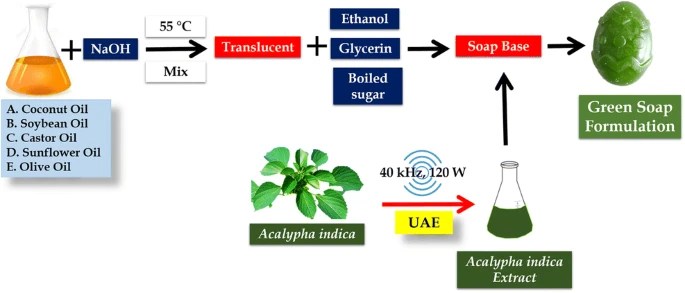
Through a systematic approach, EnzymoGenius™ designs, optimizes, and delivers enzyme-based solutions for a wide range of applications in the hand soap industry. Utilizing the power of AI facilitates advancements in enzyme research and fosters innovative solutions to improve the efficiency and effectiveness of enzyme solutions in this field.
Background
Innovative research within the confines of enzymology is actively exploring the potentiality of enzyme applications in the manufacture of hand soaps, rigorously contributing towards product enhancement. Enzymes, as catalytic proteins, expedite biochemical reactions facilitating the cleansing activity of the soap. By successfully integrating enzymes such as proteases, lipases, and amylases, the efficacy of hand soaps can be substantially amplified. Proteases facilitate the breakdown of protein-based residues; lipases are effective in eradicating fat or oil-based dirt, while amylases are instrumental in the elimination of carbohydrate-based grime.
 Fig 1. Green soap formulation. (Maiti S, et al., 2020)
Fig 1. Green soap formulation. (Maiti S, et al., 2020)
Not merely limited to improving cleansing properties, enzymes also significantly contribute towards environmental sustainability by substantiating a biodegradable foundation for soap formulations. Nonetheless, formulation stability and enzyme durability amidst varying temperature and pH levels remains a key challenge. The ongoing research promises innovative solutions, recognizing the latent potential of enzymes in augmenting the spectrum of capabilities within hand soaps.
Products and Solutions Offering
Custom Products
- Lipases: Lipases play a crucial role in breaking down fats and oils, making them essential in hand soaps for effective grease removal.
- Proteases: Proteases aid in the breakdown of proteins, contributing to the removal of protein-based stains, a common issue in hand soaps.
- Amylases: Amylases assist in the degradation of starch-based residues, such as food and organic matter.
- Cellulases: Cellulases are valuable for removing cellulose-based stains and improving fabric feel.
Custom Solutions
- Enzyme Identification: Identification of enzymes suitable for various aspects of hand soap research, ensuring the selection of the most appropriate biocatalysts.
- Enzyme Engineering: Engineering of enzymes to enhance their performance in detergent formulations. This process involves altering enzyme structures to optimize their activity under specific conditions.
- Enzyme Kinetics Analysis: Providing tools for the analysis of enzyme kinetics, enabling a deeper understanding of enzyme-substrate interactions crucial for hand soap development.
- Stability and Compatibility Assessment: Assessing enzyme stability and compatibility with other ingredients in hand soap formulations, ensuring the enzymes remain active and effective.
Services Process for Enzyme Design and Optimization
1. Data Collection: Our process begins with extensive data collection, including enzyme sequences, substrate properties, and relevant biological information.
2. Machine Learning Algorithms: Advanced machine learning algorithms are employed to model enzyme-substrate interactions, enabling the prediction of enzyme performance.
3. Structure Prediction: AI predicts enzyme structures, aiding in the design of modified enzymes for specific functions.
4. Virtual Screening: Enzyme candidates are virtually screened, and the most promising ones are selected for further optimization.
5. Optimization Strategies: AI-driven strategies are employed to optimize selected enzymes for improved efficiency, stability, and compatibility with hand soap formulations.
Technical Advantages
- Artificial Intelligence (AI): AI is at the core of our platform, driving enzyme design and optimization through machine learning and predictive modeling.
- Computational Biology: Computational biology techniques enable the analysis of enzyme-substrate interactions and the prediction of enzyme behavior.
- Structural Biology: Structural biology methods provide insights into enzyme structures, aiding in the design of modified enzymes.
- High-Throughput Screening: This technology allows for the rapid testing of enzyme candidates to identify the most promising ones.
- Bioinformatics: Bioinformatics tools help in the collection and analysis of biological data crucial for enzyme research.
CD Biosynsis is a pioneer in delivering enzyme-based solutions for the fabric and household care sector. Our suite of services covers enzyme identification, optimization, formulation, and compatibility testing. These solutions apply to various research areas, from enzyme kinetics to formulation chemistry, environmental impact, and enzyme engineering. Our technical advantages encompass enzyme profiling, high throughput screening, custom formulation, a sustainability focus, and a commitment to continuous research. Contact us to explore the limitless potential of enzyme-based solutions for cleaning and care.


































 Fig 1. Green soap formulation. (Maiti S, et al., 2020)
Fig 1. Green soap formulation. (Maiti S, et al., 2020)